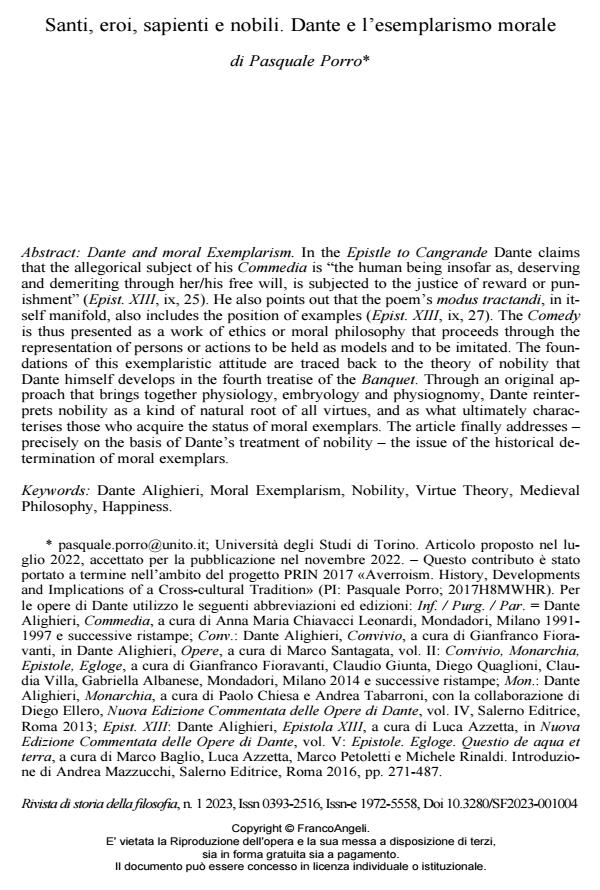Dante and moral Exemplarism.
Journal title RIVISTA DI STORIA DELLA FILOSOFIA
Author/s Pasquale Porro
Publishing Year 2023 Issue 2023/1
Language Italian Pages 16 P. 40-55 File size 153 KB
DOI 10.3280/SF2023-001004
DOI is like a bar code for intellectual property: to have more infomation
click here
Below, you can see the article first page
If you want to buy this article in PDF format, you can do it, following the instructions to buy download credits

FrancoAngeli is member of Publishers International Linking Association, Inc (PILA), a not-for-profit association which run the CrossRef service enabling links to and from online scholarly content.
In the Epistle to Cangrande Dante claims that the allegorical subject of his Commedia is "the human being insofar as, deserving and demeriting through her/his free will, is subjected to the justice of reward or punishment" (Epist. XIII, ix, 25). He also points out that the poem’s modus tractandi, in itself manifold, also includes the position of examples (Epist. XIII, ix, 27). The Comedy is thus presented as a work of ethics or moral philosophy that proceeds through the representation of persons or actions to be held as models and to be imitated. The foun dations of this exemplaristic attitude are traced back to the theory of nobility that Dante himself develops in the fourth treatise of the Banquet. Through an original approach that brings together physiology, embryology and physiognomy, Dante reinterprets nobility as a kind of natural root of all virtues, and as what ultimately characterises those who acquire the status of moral exemplars. The article finally addresses - precisely on the basis of Dante’s treatment of nobility - the issue of the historical determination of moral exemplars.
Keywords: Dante Alighieri, Moral Exemplarism, Nobility, Virtue Theory, Medieval Philosophy, Happiness.
Pasquale Porro, Santi, eroi, sapienti e nobili. Dante e l’esemplarismo morale in "RIVISTA DI STORIA DELLA FILOSOFIA" 1/2023, pp 40-55, DOI: 10.3280/SF2023-001004